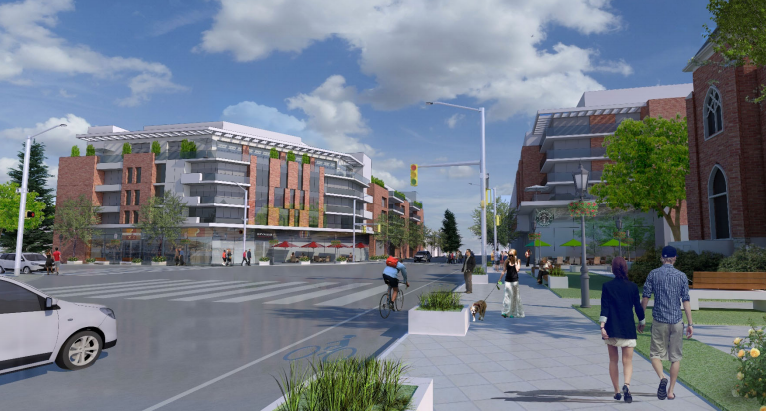What will Barrie look like in two decades?
City councillors heard a presentation from planning director Michelle Banfield on Monday night during general committee about how city staff are looking to make more efficient use of land within the existing municipal boundaries, with a more compact urban form, as well as with more lifestyle choices and opportunities.
"It really is the changing face of Barrie," Banfield said.
By 2041, the city is expected to grow by more than 100,000 people and some 54,000 jobs. Under the provincial Growth Plan, the city has certain targets it must meet, which will happen through intensification and infill projects, but the infrastructure is also required to meet those demands.
The growth will happen throughout the entire city and in different forms.
Intensification isn't just highrise buildings; it could also mean second suites in existing homes.
"Ultimately, intensification is really going to change our build form," said Banfield, who added "there is room for old and new as Barrie sees intensification."
The enduring motto in planning circles is "complete communities," which is proximity to everything from city programming and health care to artwork and other ways to connect residents to their community.
Coun. Keenan Aylwin asked how planning staff define "complete communities."
"We talk about the main land uses you need to live your life. You've got a place to live, a place to work, if you're of working age," Banfield said. "Do you have access to open space? Do you have a place to buy your groceries or get morning coffee or tea, that sort of thing. If you walk out your door, what's at your doorstep? That's what I mean in terms of a complete community."
Coun. Clare Riepma, who represents Ward 1 in the city's east end, asked how intensification may affect some established areas of the city.
Banfield said it's something that's happening across the city and not just in one area, such as the south end, as some residents believe is where all of the growth will be happening.
Andrea Miller, Barrie's general manager of infrastructure and growth, said there are different ways to address growth in the downtown versus the outlying neighbourhoods around the city. The municipality could also identify other growth areas through the Official Plan.
"It's not just the urban growth centre and nodes, but could also be second suites," Miller said. "You may not even know there's a different density when you're looking from the street."
With the city approving projects but construction not getting underway in some cases, Riepma also asked how the city can meet the provincial growth targets.
Miller said planning staff keeps a close eye on applications through a tracking system and sets projections for various developments to get underway.
"We see it everyday," said Miller, who expects more development acticity in 2020 and "certainly in 2021."
Mayor Jeff Lehman said sometimes after an application comes into city hall and is approved, developers can attempt to drive up land values by up-selling a project. The mayor asked whether there was any way to rescind applications if there's no construction by a certain time.
"The city is in a position, and I often get asked this question, can we not screen development applications to understand whether they will actually be built, or whether we are dealing with what is fundamentally about increasing the value of the land," the mayor said.
Lehman asked whether there are ways for an approval to expire if a project does not begin within a certain timeframe.
Banfield said there's wording in the zoning bylaw which indicates the development has to be "substantially" in accordance with the concept plan that was presented to council. Further, when a project gets to the site-plan approval stage, there can be expiry dates attached, as well as holds and conditions on zoning bylaws.
"There are a few things that we can do ... depending on the situation," Banfield said.
Miller added that the city's planning department has been "much more proactive" in recent years with enforcing timeframes.
"When requests for extensions come in, which they do, we are much harder to convince that those extensions should be afforded it we're not seeing any real activity," she said.

